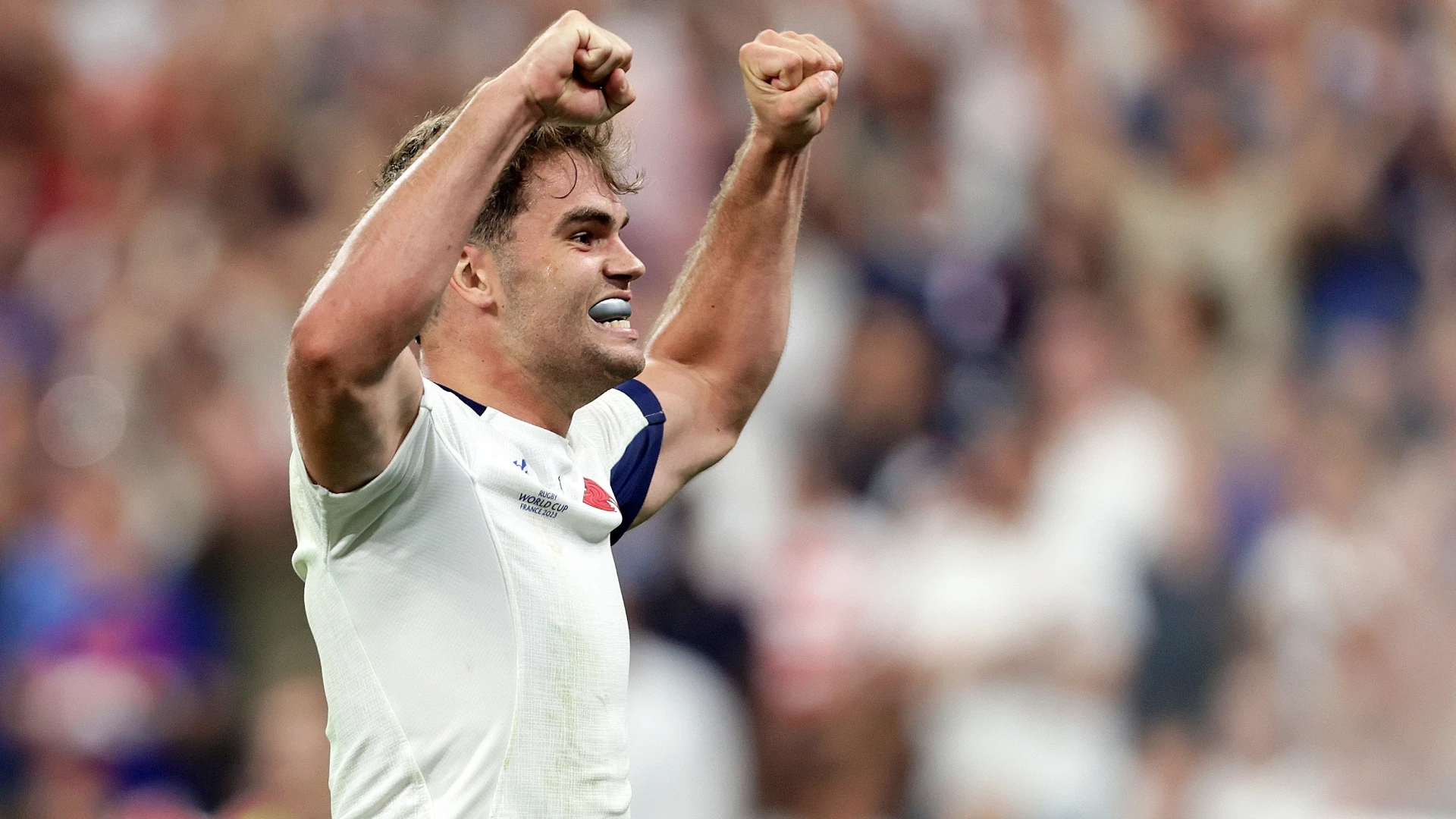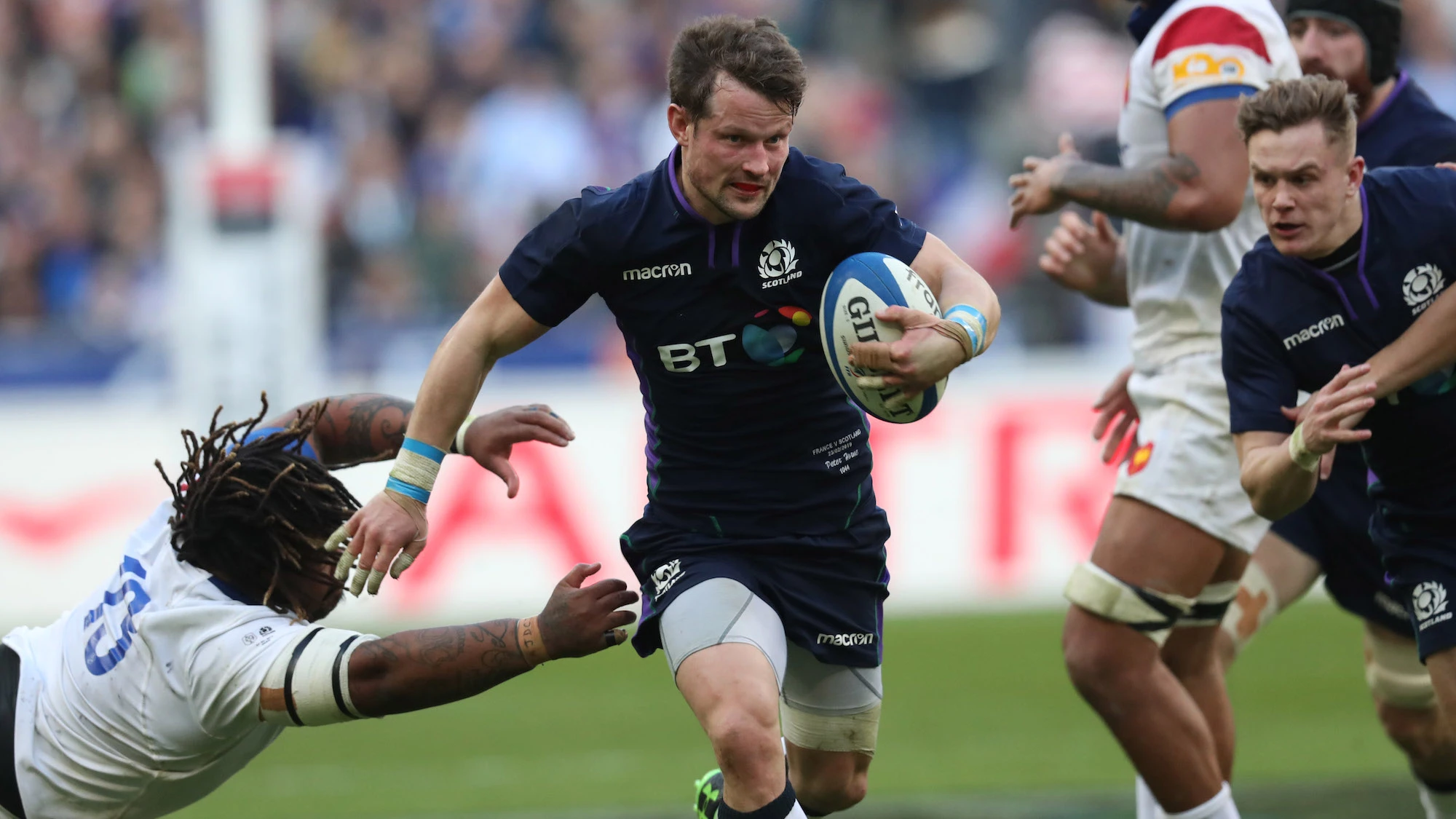An entertaining opening weekend of the 2023 Rugby World Cup saw hosts France kick it all off by beating New Zealand before Wales closed out three days of action by winning a thriller.
France’s opening success against the All Blacks got the ball rolling on a weekend of eight entertaining encounters, while England were very impressive in their 14-man success against Argentina.
Italy and Ireland both racked up the tries in big wins over Namibia and Romania respectively, while Wales beat Fiji in the game of the weekend.
Hosts overcome early nerves for statement win
France and New Zealand have played out some of the most memorable matches in World Cup history, and their clash in the opening game of the 2023 Rugby World Cup was arguably the most anticipated curtain-raiser in the competition’s history.
That New Zealand required less than two minutes to put Mark Telea over for the fastest-ever try in a World Cup opener was far from the ideal start.
However, the way France were able to turn things around on their way to a 27-13 success, the biggest defeat New Zealand have ever suffered in the competition, is a testament to the strength of Fabien Galthié’s side.
In the first half they built a 9-8 lead from a dominant scrum and some excellent scramble defence, before hitting their stride in the second half.
By the end, New Zealand were losing the kicking battle and unable to get out of their own half, with Damian Penaud – top try-scorer in the 2023 Guinness Six Nations – notching his 30th try for France before Melvyn Jaminet grabbed his first.
France can play much better, and will have to if they are to live up to the high expectations of their supporters. But on a night where they were under the biggest pressure, they delivered the result needed to advance in this competition with confidence.
Ford revives lost art of the drop goal
A third red card in four games was far from ideal for England but the way they responded to Tom Curry’s dismissal after barely three minutes against Argentina was hugely impressive.
The forwards set the platform, and the likes of Freddie Steward and Manu Tuilagi also played a big role, but George Ford ran the show.
His three drop goals allowed England to open up a 12-3 break at the lead and offered a solution to any teams who find themselves down a man early.
Rather than tiring themselves out by trying to score a try, England were able to keep the scoreboard ticking over and it clearly rattled their opponents, who then started to lose their discipline in the second half.
With Ford as accurate from the kicking tee as from hand, England were able to streak clear and record a 27-10 win that puts them in pole position in Pool D.
Attacking Wales rewarded in game of the weekend
The clash between Wales and Fiji in Bordeaux always had the makings of a thriller and 16 years after the teams played out an all-time classic in Nantes, they again produced a spectacular encounter.
For Warren Gatland’s side, a 32-26 success brings with it five points, with tries from flyers Josh Adams, George North and Louis Rees-Zammit topped up by a crucial bonus-point score from Elliott Dee.
The Welsh had to withstand a mighty Fijian comeback in the final 20 minutes, with the Pacific Islanders on the attack before a final knock-on cost them the chance to repeat their dramatic success in Nantes on this stage in 2007.
In a particularly open group, Wales will be thrilled to come away with maximum points, but just as important was some of the attacking shape they put in place, regularly opening up the Fijian defence.
Next up will be Portugal, before Australia and Georgia come later in the pool stage, but this was more or less the perfect start.
Perfect opening salvo for Grand Slam champions
Ireland came into this tournament as the world’s number one side and barring an opening two minutes in which they were caught cold, they lived up to that billing in an 82-8 win over Romania.
In what shapes up to be their easiest game of the pool stages, Ireland hit the ground running, putting their multi-phase attack into practice on their way to 12 tries.
Despite the sweltering conditions, the Grand Slam champions were slick with ball in hand, while Bundee Aki looked a threat every time he touched the ball.
Most importantly, Johnny Sexton marked his return after six months out – he last appeared in the win over England in March that sealed the Grand Slam in Dublin.
A misjudged grubber kick that allowed Romania in for the opening try aside, it was the ideal return for Sexton, who scored two tries of his own as part of a 24-point haul, equalling the highest ever by an Ireland player in this competition.
Tougher tests will come, but Ireland could not have asked for more from their opener.
Super subs give Italy perfect platform
Italy came into the World Cup as outsiders to qualify in a group with France and New Zealand but they got off to an ideal start with a 52-8 win over Namibia.
It was far from straightforward early on for the Azzurri, who led 17-8 at half-time, with tries from Lorenzo Cannone and Paolo Garbisi.
It was a different story in the second half, however, as Italy scored five tries, all converted by the faultless boot of Tommaso Allan, as they pulled away to their biggest ever Rugby World Cup win.
The performance lacked fluency at times, particularly in the first half, although that can be expected in tournament openers.
But a big positive for Kieran Crowley will have been the difference the replacements made.
Three of the five second-half scores came from substitutes, with replacement hooker Hame Faiva bundling over from close range before Manuel Zuliani and Paolo Odogwu scored well-taken tries to hit the 50-point mark.
The Azzurri next face Uruguay on Wednesday September 20 and the performances of those off the bench has given Crowley selection dilemmas.
Set-piece struggles stifle Scotland
An opening game against the world champions was always going to be a tough start for Scotland but there will be frustration for Gregor Townsend at how his side struggled to fire a shot against the Springboks in Marseille.
The Scots spent much of the first half in their own half, with a misfiring lineout denying them a platform on the occasions that they did get into South African territory.
A couple of scrum penalties at the end of a half where they trailed 6-3, gave some reason to believe, but the Springboks turned the screw in that area in the second half with their replacement front row.
From there, it was always asking too much for Scotland’s defence to hold, while Finn Russell had limited opportunity to open up South Africa with no platform in the opposition half.
An 18-3 loss is not terminal to Scotland’s hopes, but they will now have to beat Grand Slam champions Ireland in their final group game to have any hope of getting through, with games against Tonga and then Romania to navigate before then.



